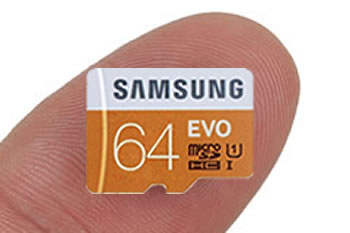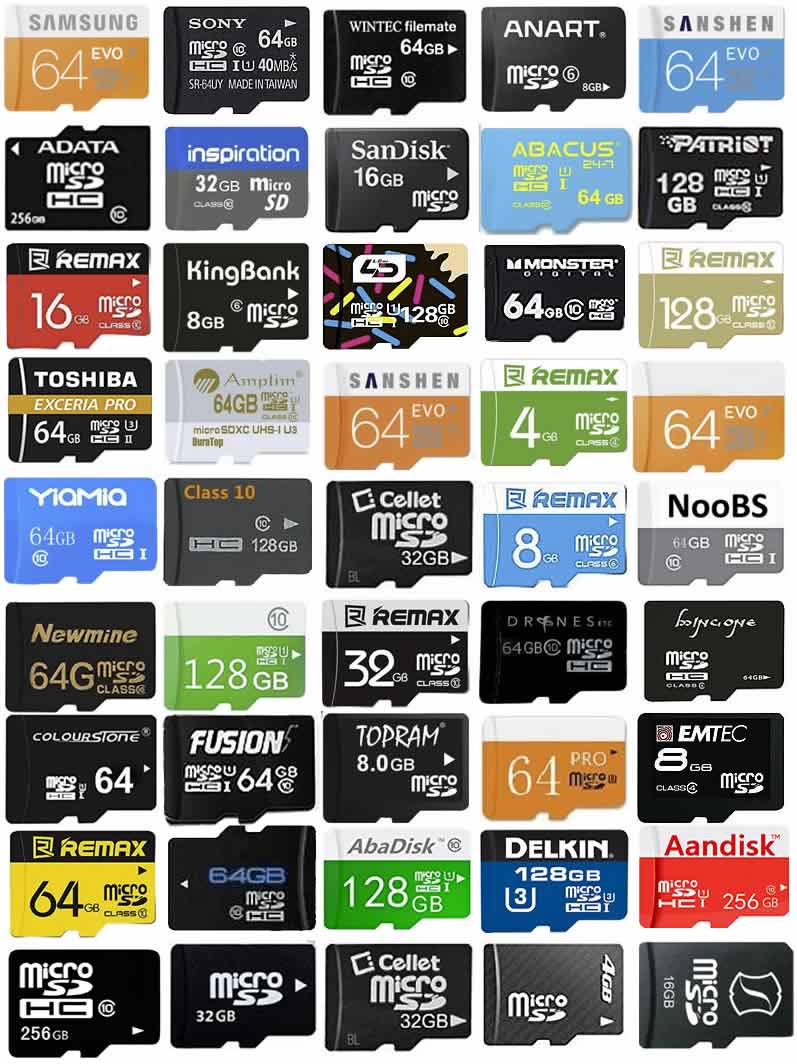Amazon Caught (Again) As A Direct Seller Of Counterfeits
Consumers risk losing data and images when using counterfeit memory cards.
November 14, 2017, Los Angeles, CA – Consumers purchasing extra cellphone or camera memory to save pictures of holiday events and family gatherings may be better served by avoiding Amazon and looking to local retailers for authentic products. Simply, Amazon is selling fakes (again1) - both as a direct seller, and from its third party global "Marketplace" sellers.
Amazon's claims; "The sale of counterfeit products, including any products that have been illegally replicated, reproduced, or manufactured, is strictly prohibited" - but that is not true. The fact is that Amazon is a direct seller of counterfeits, and allows unvetted sellers from all over the world to list and sell fakes on Amazon.
The Counterfeit Report®, a consumer advocate and industry watchdog, found and reported over 25,000 counterfeit memory cards on Amazon. While Amazon often reported the listings were removed, in many cases the inarguably fake items remain, or continued to be listed despite repeat notifications to Amazon, and directly to Amazon's Director of Product Integrity.
Alarmingly, Amazon does not notify buyers they may have purchased a counterfeit item that could destroy data and damage their equipment - of course, buyers would then be entitled to a refund.
It's a simple scam, take a low capacity computer memory card costing a few cents and reprint it with a higher capacity label and a globally recognized trademark. Sell the items on Amazon as authentic for up to $100.00 or more.
While no bigger than your fingernail, tiny replaceable memory cards hold your data, photos and contacts in your phone, camera, iPad, tablet, laptop and GPS. If you buy a fake, you are likely to lose your data and images, and you may damage your equipment. Could you identify this microSDHC® card as a fake? It does not exist in the Samsung product line, or in the microSDHC® standard which is limited to just 32GB.

The Counterfeit Report purchased counterfeit memory cards from both Amazon as a direct seller, and its third-party sellers. It was not uncommon for some counterfeit cards to fail during tests as unusable, or test at capacities significantly below their printed capacity. When the fake cards reach their real capacity, they erase and overwrite existing data.
Consumers cannot determine the actual memory capacity of a counterfeit memory card by simply viewing the capacity displayed on their computer, phone or camera. The counterfeiters are too smart for that, and simply overwrite the real memory capacity with a false capacity to match any capacity they print on the counterfeit packaging and card. A free downloadable test program (H2TESTW.exe) will easily tell you the real capacity of your card.
The counterfeit micro SD® memory cards shown below (and many more on TheCounterfeitReport.com website) were all listed for sale on Amazon. Did you get a fake?

(photos:© The Counterfeit Report®)
The micro SD® trademark is owned by SD-3C, LLC, who licenses its use. None of the items shown above, and sold on Amazon, are authentic licensed products. The fake cards may also tout certification from the FCC, CE, VCCI, and NATA leading you to believe that the card meets certification standards. And, of course, there is no manufacturer to honor any warranty.
The removable micro SD memory storage card is an amazing, convenient and trouble-free storage device. When it works, it is unnoticed. When you get a fake, it will be the very core of your frustration, despair and pain – and your data may be gone. If you are going to trust your data and photos to a micro SD® card, be sure to buy authentic memory cards from authorized retailers or directly from the manufacturer. See TheCounterfeitReport.com for more examples of actual counterfeit and fake memory cards.
Companies that facilitate criminal activity and profit from dishonest sales which impact consumer safety, jobs and public trust create a public perception of deception and impunity. However, their reputation damage is inconsequential to the real problem: the value of counterfeit and pirated goods is forecast to grow to $2.8 trillion, and cost 5.4 million net job losses by 20222, while legitimate manufacturers' brand integrity is tarnished or destroyed.
Footnote:
1Apple® reported that 90% of Apple products it purchased from Amazon as a direct seller were counterfeit.
2 THE ECONOMIC COSTS OF COUNTERFEITING AND PIRACY
The report was prepared for The International Chamber of Commerce, Business Action to Stop Counterfeiting and Piracy unit (ICC BASCAP) and The International Trademark Association (INTA)
January 2017
Frontier Economics, Ltd.
 |